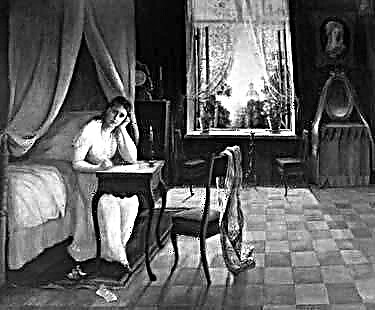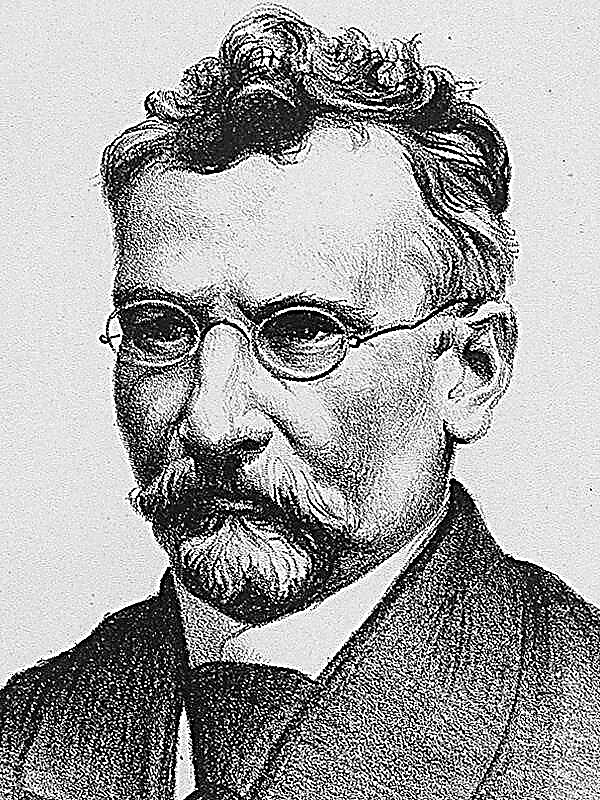: The book of a scientist-somnologist reveals the secrets of sleep: how did a dream come about and why is it needed, how much should one sleep, do prophetic dreams exist, how to overcome insomnia, snoring and drowsiness. Sleeping well is very important.
How much to sleep. Was Leonardo right?
Most people sleep 7-8 hours: apparently, such a quantity of sleep is laid down by nature in human genes. According to official medical recommendations, a healthy adult who does not have special needs (such as athletes) needs at least seven hours of sleep. But when sleep is limited in extreme conditions (for yachtsmen, for example), nothing bad happens if it is reduced slightly, for example, not from eight hours to five, but from six to five. Five hours is the minimum necessary to restore vital functions, “nuclear sleep”.
Children sleep much more than adults. If sleep performs a certain restoration function, then during the period of maximum growth of the body, this need is most in demand. The common assertion that "children grow up in a dream" is a proven scientific fact.
In adults, sleep promotes better muscle recovery. "Adults" 8 hours of sleep a person begins to receive from 18 years, when puberty ends. Analysis of data for the past 103 years showed that children now sleep an hour less than at the beginning of the last century, but in general, the duration of sleep has remained the same. Not genetics has changed (in such a short time, this is impossible), but the style of raising children associated with the increasing role of women in public life, as well as with the “Edison effect” (especially by candlelight at night you will not keep up).
Sleeping bears and elephants. Where does the dream come from?
Sleep-like conditions appeared in living beings millions of years ago. Apparently, they were necessary for physical recovery and growth. With the development of the brain, sleep began to play a role in learning, adapting to environmental conditions that did not correspond to innate forms of behavior. This led to the division of sleep into two parts - the main, the ancient, the slow-wave and the newer, which is a “fragment” of wakefulness, paradoxical.
The duration of sleep is determined by the genetic mechanism that has not yet been determined and depends on the type of animal, its metabolic rate and the way of feeding. Among mammals, the champion in the duration of sleep is the marsupial rat possum (19.4 hours per day). Horses sleep the least (about 3 hours). Mice sleep as much as cats - an average of 13.2 hours.
More ancient species (crocodiles and lizards) have, in addition to sleep, several additional states of rest, as if evolution had not yet chosen which state to prefer for the best recovery of the body. The behavior of patients with certain diseases is considered by scientists as a manifestation of more ancient response patterns in a person (for example, the catatonia phenomenon characteristic of reptiles in patients with schizophrenia).
Theories of sleep. Why waste time sleeping?
Some forms of brain activity are only possible during sleep. Firstly, it is work with the information received during the day. Secondly, the brain at this time can deal with the affairs of internal organs (for example, the use of sleep for the intestines has been proved).
The energy-saving function of sleep, apparently, is additional, because the state of sleep itself is less expensive in terms of providing energy. The same applies to the cleansing function: in a dream, the activity of nerve cells decreases and their purification from ballast substances is improved. The mystery remains the positive effect of sleep on immunity.Perhaps the state of sleep is more beneficial for the processes of growth and cell division, including immunocompetent ones.
Sleep mechanisms. Can I sleep for the future?
Two concepts are important here - “sleep pressure” and “process C”. Adenosine accumulating throughout the day provides an increase in drowsiness. In the evening, when most people are going to bed, they already have high sleep pressure as a result of prolonged wakefulness. At the same time, the intensity of process C (the daily change in brain activity, from the English circadian - "circadian") is on the decline.
A discrepancy arises between these multidirectional processes - the so-called "Gates of sleep." The "wider" they are "open", the faster you fall asleep. And this explains why you can’t catch up on sleep time lost at night. During sleepless nights, the pressure of sleep increases. At the same time, the C process passes its minimum at night, and in the morning it goes up.
Having worked the night shift, the person returns home, goes to bed and even falls asleep (“sleep pressure”), but he fails to sleep for a long time (hi to “Process C”). The same model explains why people with nighttime sleep disorders should not sleep during the day - by evening, the pressure of sleep decreases and it becomes more difficult to fall asleep.
Sleep and biorhythms. Is the “owl” “lark” comrade?
Chronotypic differences are encoded in the genetic apparatus of the cell, however, only 20% of people are obvious “owls” or “larks”, while the rest belong to “pigeons” that easily change their chrono-habits.
Despite the simplicity of determining the chronotype, the mechanisms of its formation — the level of illumination, the strength of sleep pressure, the individual ability to resist sleep — have not been finally determined, and scientists consider the division into “larks” and “owls” too primitive. Although the chronotypes are spelled out at the genetic level, genetics determines only 54% of the choice between an owl or a lark, 3% determines the age factor, and 43% are responsible for the external environment (for example, the work schedule) and factors unknown so far.
Dreams Do prophetic dreams exist?
The existence of prophetic dreams can be explained by intuitive inference. This is a consequence of the analysis of not only conscious but also unconscious information. The most detailed classification of prophetic dreams was proposed by American psychologists Kripner and Dillard in 2001 in the book "Dreams and a creative approach to solving problems."
Unusual images and events that occur in a dream are explained by the fact that in a dream some areas of the brain work too actively (emotional brain), while others that are responsible for a critical assessment of reality do not function. Dreams can be controlled and interpreted, but in most cases they are devoid of any valuable content.
Insomnia. How to overcome insomnia?
Doctors consider the word “insomnia” to be incorrect: for people who complain about it, their sleep is not completely absent, the patient simply does not remember those periods of the night when he “fell through” into sleep. A person can endure without sleep for a long time (Guinness record - 11 days), but will pay for it with a decrease in attention, memory, and a violation of social interaction.
Insomnia is a consequence of stress, so in normal life no one is safe from sleep disturbances. The boundary between healthy and unhealthy sleep is conditional: the diagnosis of insomnia is made when sleep disturbances occur more than three times a week. Insomnia occurs in people characterized by congenital high brain activity. Even after eliminating the real reason, insomnia can gain a foothold due to the fact that the patient himself inspired the installation of a "bad dream". Therefore, cognitive-behavioral therapy here often helps better than sleeping pills.
Pharmacology of sleep. Red or blue pill?
The main substance that stimulates sleep is gamma-aminobutyric acid, and most often they try to influence GABA receptors to improve sleep. This, however, is the most general approach; various effects of drugs.
So, the effect of the famous “valerian” in relation to the time of falling asleep does not exceed the placebo effect. But the effects of barbiturates discovered in the 19th century, of which phenobarbital is most known, on the contrary, turned out to be excessive. The later benzodiazepine sleeping pills (phenazepam) were safer. Barbiturates and benzodiazepines quickly became available and relatively cheap, which increased the number of suicides with their use.
Only a few sleeping pills can be taken over time. The search for an “ideal sleeping pill” is now relevant, which could be taken continuously, every night, without the risk of addiction and decreased cognitive functions.
Snoring and sleep apnea. Snoring is not harmful?
Snoring is harmful, and the consequences of snoring can be not only physiological, but also social - 35% of couples in which one of the partners snores has problems in family relationships. However, it is treated well, mainly by surgery, and snoring should be aware of this possibility: otherwise, snoring can develop into a more serious problem - obstructive sleep apnea syndrome.
The peculiarities of sleep. When the mind with the heart is at odds?
The phenomena that occur during sleep are intriguing by their “inexpediency” from the point of view of those who are awake. Currently, many mysteries of such states have been uncovered. So, restless legs syndrome is associated with a genetic deficiency of iron in the brain. Most cases of parasomnia (for example, sleepwalking) are explained by the phenomenon of “local sleep”, when certain areas of the brain “wake up” and organize unusual behavior, while most of it continues to sleep.
Among other parasomnias associated with “fixation” on any form of behavior, an interesting form of unconscious exchange of sms during sleep (sleep texting) is interesting. According to some reports, up to 20% of young people wake up at night due to incoming messages. Awakening may be incomplete, but sufficient for a set of answers. How correct this answer will be in the sleep conditions of the brain zones responsible for the "social brakes" will be found out only in the morning. Apparently, this prospect does not scare young people.
Over the past 15 years, the attitude of scientists to sleep has become more respectful. He is no longer considered an appendage of wakefulness. The effect of refreshing sleep is already being used as a non-doping method to enhance athletic or personal performance. There are devices that allow you to monitor your sleep at home and even improve its quality.
Researchers are getting closer and closer to solving the main question - where is the person’s consciousness during sleep and whether it can be detected at this time. As the somnologist said
Before you think whether we are sleeping properly, it is worth considering whether we are awake correctly. Take a look around your wakefulness: is everything there safe?












